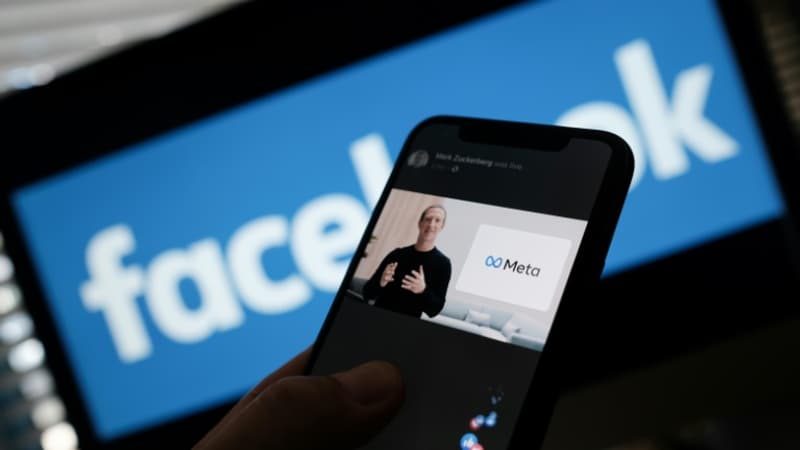Meta (Facebook, Instagram, WhatsApp) is once again winning over users and investors, but emerges weak from 2022, the first year its ad revenue has declined since the social media giant went public in 2012. Full-year business fell 1% to $116.61 billion, according to its earnings release.
Its title still jumped 19% during electronic trading after the stock market closed on Wednesday, because the market expected a more brutal fall for the group that has been trading on sight for a year, between macroeconomic restrictions and fierce competition for the consumer attention. . In another positive sign, the original social network, Facebook, has reached 2 billion daily active users, up from 1.98 billion at the end of September.
In total, some 3.740 million people use at least one of the company’s services (social networks and messaging) each month.
These good surprises do not hide the reality of a company that has seen better days. In the fourth quarter of 2022, Meta saw its net profit halve to $4.65 billion. Its revenue and profits have been hit by shrinking advertiser budgets due to the economic crisis, competition from TikTok, and regulatory changes from Apple, which limit the ability of social networks to collect user data to sell. highly targeted ads.
11,000 jobs cut
Like many big companies and all of its bigger Silicon Valley neighbors except Apple, Meta rolled out a massive social plan in the fall. The group has cut 11,000 jobs, or about 13% of its workforce, and has frozen hiring until the end of March 2023. And it may not be over. “We are looking to … remove certain levels, certain middle management positions to speed up decision making,” Mark Zuckerberg, the group’s chief, said during a conference call with analysts on Wednesday.
He wants 2023 to be “the year of efficiency” after 18 years of “rapid growth” and believes it will be “more enjoyable” for employees to work because “they will be able to do more.” His company has been troubling markets for a year, when the group first lost users to Facebook. It was shortly after its name change and the announcement of its pivot into the metaverse, this parallel universe billed as the future of the Internet, accessible in particular through augmented and virtual realities.
But Reality Labs, the arm in charge of developing the metaverse, extended its losses to $4.3 billion in the last quarter, after already losing $3.7 billion in the third quarter and $2.6 billion in the second. “Mark Zuckerberg will have to come to terms with the sad reality that businesses and consumers have no appetite for virtual worlds right now,” said Insider Intelligence’s Debra Aho Williamson. The billionaire indicated Wednesday that the metaverse remains a priority, but less urgent than AI.
return of the AI
AI has made a comeback this fall as the star of new technology, thanks to generative AI software ChatGPT, which is sparking passions. Put online by the Californian start-up OPenAI in November, it is capable of writing all kinds of texts and lines of computer code. Like Google, Meta was already working on generative AI. Mark Zuckerberg hopes in particular that it will make it easier to create “3D videos, avatars and images” for different platforms.
AI is also at the center of efforts by the world number two in advertising to encourage its users to spend time with its apps and earn more revenue from them. The company copied TikTok’s short and captivating videos with its “Reels” and is now focusing on personalized recommendation algorithms, which have contributed greatly to the success of its popular competitor.
You also need to figure out how to better monetize them, because at this stage, interest in reels translates to “lost revenue,” the leader admitted, with users spending less time on Facebook or Facebook hub pages. ‘Instagram, more lucrative. Algorithms should also help Meta get around the problem posed by Apple’s policy on privacy protection for a year. AI makes it possible to improve targeting and effectiveness measures, without collecting more data.
Insider Intelligence predicts that Meta’s global market share will shrink to less than 20% this year, after reaching 22% in 2021.
Source: BFM TV


